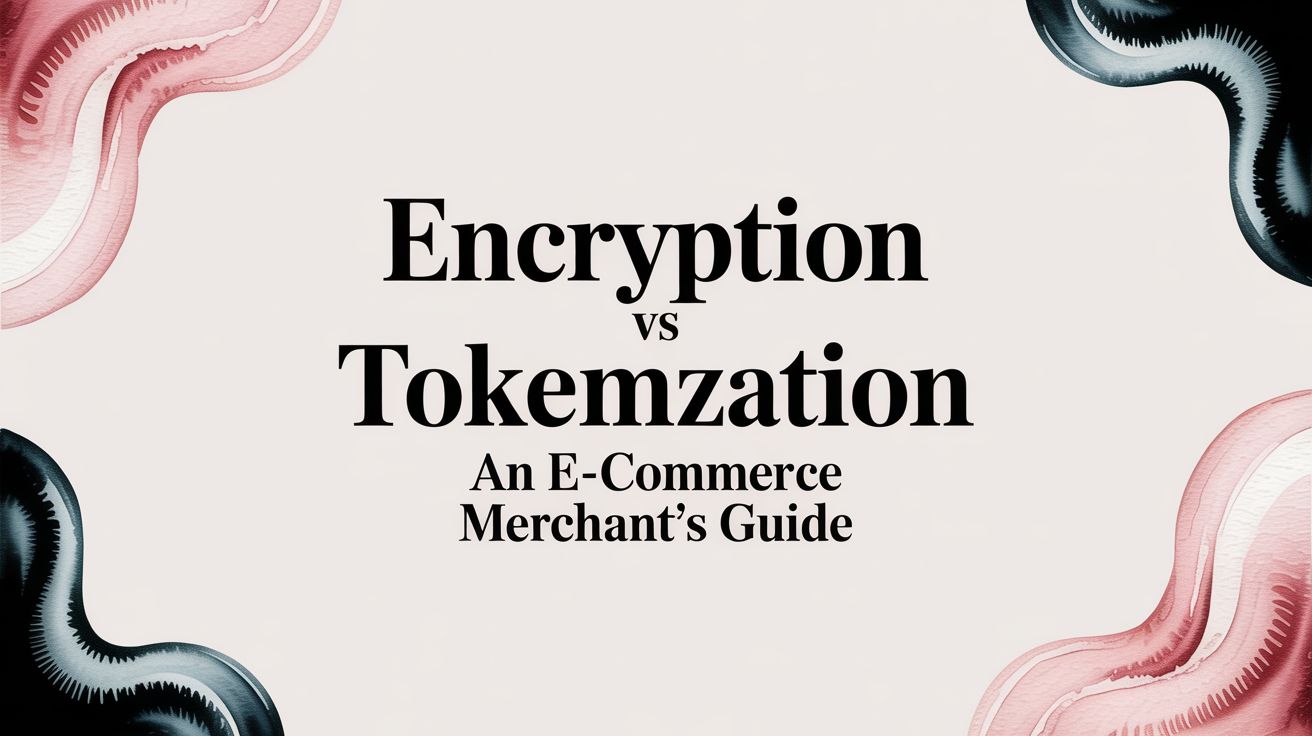
Chargeback scams are a serious threat to businesses like yours in today's digital landscape. Understanding the ins and outs of these scams is not just advisable; it's essential. So, what exactly are chargeback scams?
Chargeback scams occur when customers dispute a transaction with their bank or credit card company, leading to a reversal of the charge. This might sound straightforward, but the implications for businesses can be severe. Whether it's through the guise of friendly fraud or phishing attempts, the impact on your bottom line and reputation can be significant.
As a business owner, staying informed about chargeback scams is your first line of defense. This article dives deep into the various types of these scams, the platforms most vulnerable to these schemes, and the nitty-gritty of how they work.
We'll also explore the repercussions for businesses and provide practical tips on how to protect your enterprise from falling victim to these scams.
Understand chargeback scams and equip you with the knowledge you need to safeguard your business in an increasingly complex digital marketplace.
How Chargeback Scams Work?
Chargeback scams can throw a serious curveball at your business. Understanding how these scams work is crucial for business owners like yourself. Here's a straightforward breakdown of the process.
1. Legitimate Purchase
You start with a customer making a genuine purchase using their credit card. Everything seems smooth at this point.
2. Initiating a Dispute
Post-purchase, the customer decides to play foul. They reach out to their bank or credit card issuer and pull the trigger on a chargeback. The reasons can vary, from claiming the transaction was unauthorized to dissatisfaction with the received goods or services.
3. Investigation Phase
The bank or credit card issuer steps in and kicks off an investigation. They're like the referees in this game, examining evidence from both sides—the customer and you, the merchant.
4. Decision Time
Based on the evidence presented, the bank or issuer makes a call. It's a make-or-break moment for your business. If they lean towards the customer, get ready for the next step.
5. Outcome Unveiled
If the chargeback gets the green light, you're on the hook. The customer gets their money back, and you're left with a dent in your wallet. Plus, there's a fee for you, just to rub salt in the wound. But, if the chargeback gets the red light, you retain the payment, and the customer's claim is shown the exit.
Chargeback scams can turn a seemingly normal transaction into a headache for you. Stay vigilant and be prepared to defend your business when faced with these unwelcome surprises.
5 Types of Chargeback Scams
These scams come in various forms, each posing a unique threat to businesses like yours. Understanding these types is crucial for safeguarding your financial interests and maintaining a secure online transaction environment. Let's break down four key types of scams that you should be aware of:
1. Friendly Fraud
Friendly fraud is not as amicable as it sounds. In this type of scam, a customer intentionally disputes a legitimate transaction, claiming they didn't make the purchase or didn't receive the product or service.
The 'friendly' part is misleading because it puts businesses at a disadvantage, leading to unwarranted chargebacks and potential revenue loss.
2. Phishing Scams
Phishing chargeback scams involve deceptive tactics to trick your customers into revealing sensitive information. Fraudsters often use fake emails, messages, or websites that mimic your brand to collect login credentials or payment details.
Once armed with this information, they initiate chargebacks, leaving your business to deal with the aftermath.
3. False Claims of Non-Delivery
Customers may falsely assert that they never received the purchased item, exploiting the chargeback process.
This scam is particularly prevalent in online businesses where tangible goods are shipped. Without proper evidence of delivery, you risk losing the dispute, and scammers get away with both the product and a refund.
4. Product or Service Not as Described
Some fraudsters exploit the chargeback system by claiming the product or service they received differs significantly from what was advertised.
This can be a challenge for businesses, especially those dealing with subjective offerings. Clear communication and detailed documentation become crucial in refuting such claims.
5. Identity Theft
Scams can also stem from identity theft, where a fraudster uses stolen personal information to make unauthorized purchases.
The legitimate cardholder, upon discovering the unauthorized transactions, may initiate chargebacks. Businesses need to implement robust identity verification measures to combat this type of scam.
Common Platforms Targeted by Chargeback Scams
In the business world especially ecommerce, chargeback scams pose a real threat, and understanding the platforms frequently targeted is crucial for safeguarding your enterprise. Let's delve into four major platforms—PayPal, eBay, Venmo, along with basic credit card transactions.
1. PayPal
In online transactions, everyone knows PayPal. But even PayPal deals with chargeback scams. Sellers sometimes face unfair claims, losing money in the process.
PayPal's resolution process plays a pivotal role in determining the outcome of these disputes. As a business owner, it's imperative to grasp the specific scenarios and protective measures associated with chargebacks on this widely-used platform.
2. eBay
E-commerce giant eBay is another hotspot for chargeback scams. With numerous transactions occurring daily, sellers face the constant challenge of distinguishing legitimate claims from fraudulent ones.
Understanding the intricacies of eBay's chargeback system, along with the protections in place for both buyers and sellers, is crucial for mitigating risks and maintaining a secure online business environment.
3. Venmo
As a popular peer-to-peer payment app, Venmo has simplified money transfers for many. However, it's not exempt from chargeback scams. Users may encounter risks unique to Venmo, and businesses need to be aware of these nuances.
Educating your staff and customers on the vulnerabilities associated with Venmo transactions is vital for preventing and managing chargeback incidents.
4. Credit Card Transactions
Traditional credit card transactions, whether online or in-store, remain a prime target for chargeback scams. Fraudulent claims can hit businesses hard, affecting their bottom line and reputation.
Business owners must be well-versed in the patterns of credit card chargeback scams and take proactive measures to secure their payment processes. This includes investing in fraud detection systems and staying informed about industry best practices.
5 Crucial Impacts on Businesses
Chargeback scams can hit businesses hard, and the repercussions go beyond just the immediate financial loss. As a business owner, it's crucial to understand how these scams can impact your enterprise.
1. Financial Consequences
Chargeback scams can leave a dent in your bottom line. When customers initiate chargebacks, you not only lose the revenue from the transaction but may also face additional fees. The double hit of lost income and fees can add up quickly, impacting your overall profitability.
2. Strain on Cash Flow
For businesses, maintaining a healthy cash flow is essential for day-to-day operations. Chargeback scams disrupt this flow by tying up funds that should be circulating in your business. This can lead to difficulties in paying suppliers, employees, and other operational expenses.
3. Operational Disruptions
Dealing with chargeback claims demands time and attention. As a business owner, you or your team may find yourselves navigating through the complex process of investigating and responding to these claims. This diversion of resources can disrupt normal business operations, affecting productivity and efficiency.
4. Risk of Increased Transaction Costs
Frequent chargebacks can signal red flags to payment processors and financial institutions. As a result, you may find yourself labeled as a high-risk merchant. This label comes with increased transaction costs and may even lead to challenges in finding a payment processor willing to work with your business.
5. Reputational Damage
Beyond the immediate financial hits, chargeback scams can tarnish your business's reputation. Customers, seeing chargebacks associated with your brand, may lose trust. Negative reviews and word-of-mouth can spread, impacting your ability to attract and retain customers. Rebuilding trust is a slow process that requires dedicated effort.
How to Avoid Chargeback Scams?
Chargeback scams can pose a significant threat to your business, impacting your finances and reputation. To safeguard your enterprise from these fraudulent activities, consider implementing the following practical strategies:
1. Implement Stringent Verification Processes
When processing transactions, establish robust verification procedures to confirm the authenticity of purchases.
This can include verifying billing addresses, and CVVs, and employing advanced fraud detection tools. By ensuring thorough checks, you minimize the chances of falling victim to fraudulent chargebacks.
2. Clearly Communicate Policies
Transparent communication is key. Clearly outline your refund and return policies on your website and during the checkout process.
Make sure customers understand the terms of their purchase. When expectations are set, it reduces the likelihood of customers filing unjustified chargebacks due to misunderstandings.
3. Keep Detailed Records
Maintain meticulous records of all transactions, communications, and shipping details. Documentation is your ally in the event of a chargeback dispute.
This includes order confirmations, shipping receipts, and any correspondence with the customer. Having a comprehensive paper trail can significantly strengthen your case during an investigation.
4. Invest in Secure Payment Systems
Choose payment gateways that prioritize security. Opt for systems with advanced encryption and fraud prevention features.
These systems add an extra layer of protection, making it more difficult for scammers to exploit vulnerabilities in your payment processes. Regularly update your payment software to stay ahead of emerging threats.
5. Provide Excellent Customer Service
Exceptional customer service can be a powerful deterrent against chargebacks. Respond promptly to customer inquiries and concerns, offering solutions and clarifications.
Satisfied customers are less likely to resort to chargebacks without attempting to resolve issues directly with your business. Prioritize customer satisfaction as a proactive measure against potential scams.
Legal Aspects of Chargeback Scams
When it comes to chargeback scams, understanding the legal landscape is crucial for safeguarding your business. Let's dive into the key legal aspects that every business owner should be aware of:
1. Consumer Rights in Chargeback Disputes
In the realm of chargeback scams, consumers have certain rights. Understanding these rights is essential for navigating the dispute process. Consumers can initiate chargebacks for various reasons, such as unauthorized transactions or receiving faulty goods.
As a business owner, it's crucial to be aware of these rights to respond effectively when a chargeback is initiated against your business.
2. Legal Protections for Businesses
As a business owner, you are not defenseless against chargeback scams. There are legal measures in place to protect your interests. For instance, you have the right to dispute unjustified chargebacks.
However, the effectiveness of your defense depends on the documentation and evidence you can provide. Keeping meticulous records of transactions, communications, and product/service details can significantly strengthen your case in the event of a dispute.
3. Pursuing Legal Action Against Fraudulent Claims
In cases where chargeback claims appear fraudulent, businesses have the option to pursue legal action. While this step might seem drastic, it can be a necessary measure to protect your business's reputation and financial well-being.
However, it's crucial to consult with legal experts to assess the viability of such actions. Initiating legal proceedings without a solid foundation can be costly and time-consuming.
4. Collaborating with Law Enforcement Agencies
Chargeback scams can sometimes be part of larger fraudulent activities. Collaborating with law enforcement agencies can be a strategic move to address not just individual chargeback incidents, but also to contribute to the broader fight against online fraud.
Establishing a relationship with local authorities and reporting instances of chargeback scams can aid in building a safer online business environment.
5. Legal Obligations in Reporting Chargeback Claims
Businesses often wonder about the timeframe for reporting chargeback claims. While specific regulations may vary, it's generally advisable to report instances promptly. Delayed reporting might limit the effectiveness of your response.
Understanding your legal obligations regarding the reporting of chargeback claims is fundamental to maintaining compliance and ensuring that you can take appropriate action within the required timeframe.
Protect Your Business from Chargeback Scams with Fully AI Automated Chargeback Management
In the ever-evolving landscape of online transactions, safeguarding your business from chargeback scams is essential. ChargePay, with its cutting-edge AI-driven chargeback management system, offers a robust solution to defend your business against fraudulent claims.
Here's how ChargePay can help you protect your business and boost your revenue:
1. AI-Powered Chargeback Defense
ChargePay utilizes state-of-the-art AI technology to defend your business against every new chargeback. The system responds in real-time, employing auto-generated representments that significantly enhance your chances of winning the dispute.
This instant AI chargeback defense ensures that your business is proactive in addressing potential threats without manual intervention.
2. Effortless Chargeback Workflow Automation
Say goodbye to the manual effort involved in managing chargeback disputes. ChargePay's automated process streamlines your chargeback workflow, allowing you to reclaim over 80% of revenue lost to chargebacks.
This not only saves valuable team hours but also boosts your efficiency in handling disputes, ensuring swift resolutions and minimal impact on your business operations.
3. Industry-Leading Chargeback Wins
ChargePay is designed to help businesses win up to 3.5 times more chargebacks and disputes compared to industry averages. The AI-driven chargeback automation significantly increases your success rate in reclaiming lost revenue.
This stellar performance is achieved by seamlessly integrating with major payment providers, including Shopify, PayPal, Stripe, and more.
4. Identify and Counter Fraud Automatically
ChargePay's AI doesn't just defend; it learns to identify chargeback fraud and counters fraudulent claims automatically. This proactive approach to fraud prevention safeguards your business from potential losses, enhancing the overall security of your online transactions.
By leveraging smart AI, ChargePay empowers you to stay one step ahead in the constant battle against fraud.
Ready to Experience the ChargePay Difference?
Don't let chargeback scams hinder your business growth. With ChargePay's fully AI automated chargeback management, you can protect your business, reclaim lost revenue, and ensure a seamless transaction experience for your customers.
Let ChargePay be your trusted partner in the battle against chargeback fraud. Get started today and witness the transformation in your chargeback management strategy.







.svg)







.svg)
.svg)
.svg)